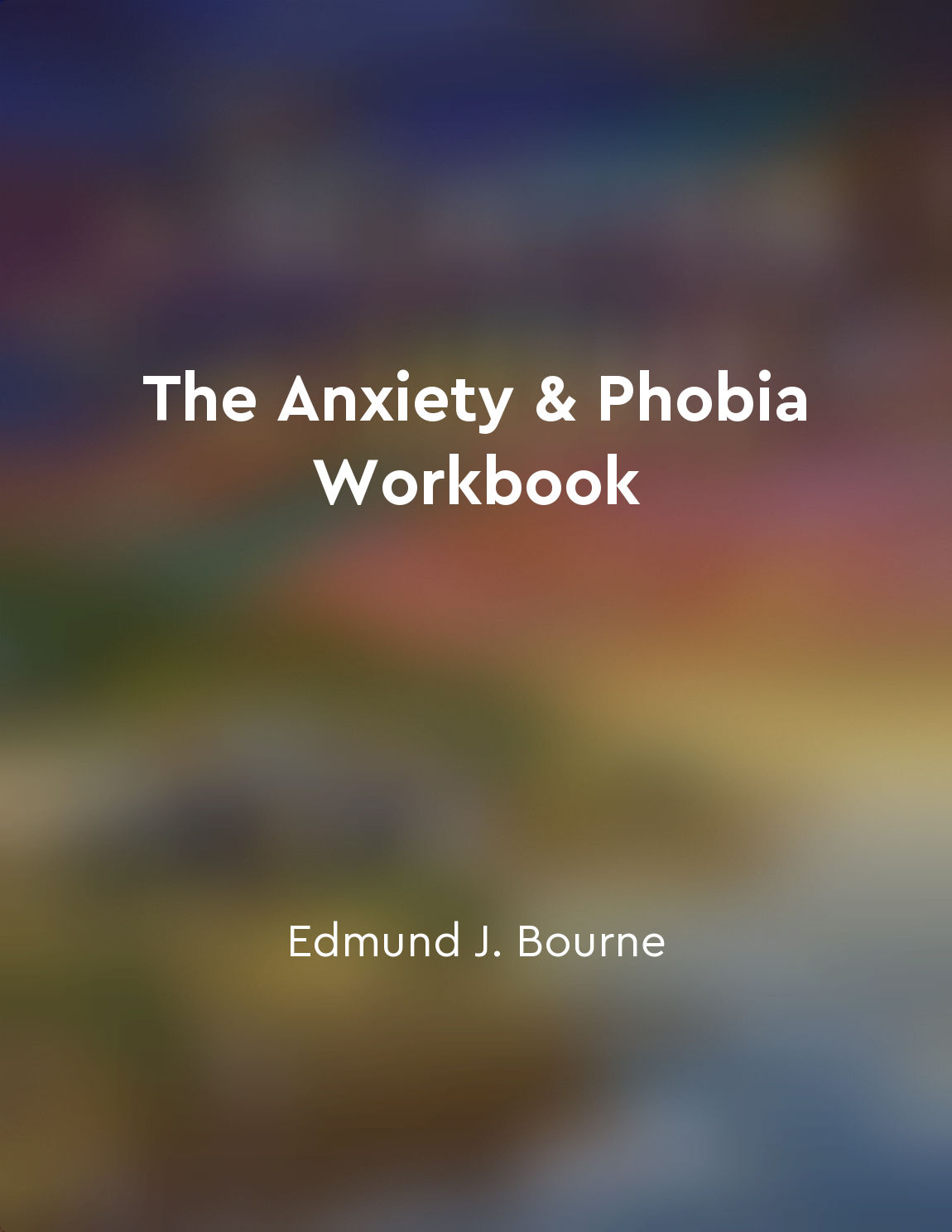Diet and sleep are important factors in managing anxiety from "summary" of The Anxiety & Phobia Workbook by Edmund J. Bourne
Managing anxiety involves taking care of your body through proper diet and sleep. Your diet plays a crucial role in regulating your mood and energy levels, which can impact your anxiety levels. Eating a balanced diet that includes fruits, vegetables, whole grains, and lean proteins can help stabilize your blood sugar levels and provide your body with the nutrients it needs to function optimally. Avoiding excessive caffeine, sugar, and processed foods is also important in managing anxiety. These substances can disrupt your body's natural rhythms and contribute to feelings of anxiety and restlessness. Instead, focus on eating foods that promote relaxation and calmness, such as nuts, seeds, leafy greens, and fatty fish rich in omega-3 fatty acids. In addition to maintaining a healthy diet, getting enough sleep is vital for managing anxiety. Lack of sleep can exacerbate feelings of stress and anxiety, making it more difficult to cope with daily challenges. Aim for seven to nine hours of quality sleep each night to allow your body and mind to rest and recharge. Developing a bedtime routine can help signal to your body that it is time to wind down and prepare for sleep. This may include activities such as reading a book, taking a warm bath, or practicing relaxation techniques like deep breathing or meditation. Creating a calm and comfortable sleep environment, free of distractions and electronic devices, can also promote restful sleep.- You can support your body's natural ability to manage anxiety and stress. Making small but consistent changes to your lifestyle can have a significant impact on your overall well-being and mental health. Remember to listen to your body and make adjustments as needed to find what works best for you in managing anxiety.


